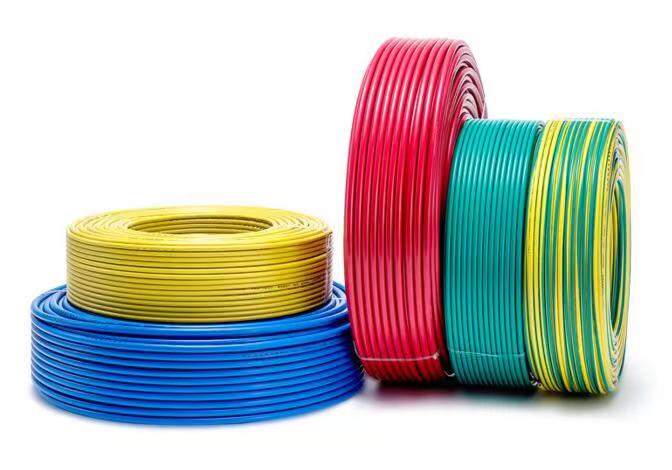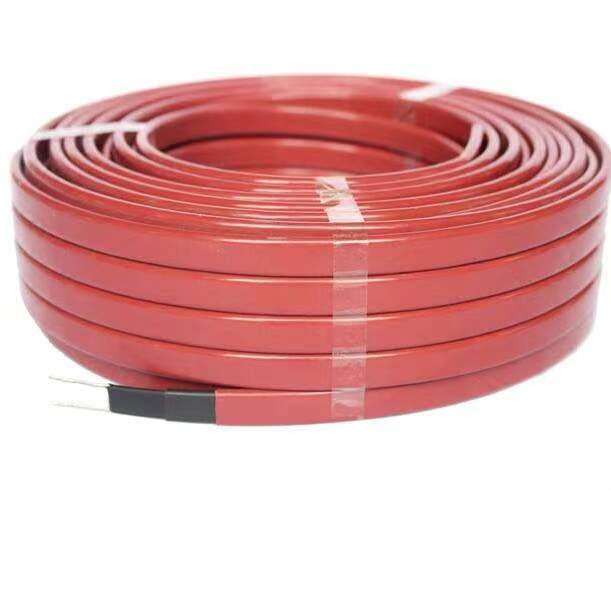Definition of heating cable
Heating cables used to be called exothermic electric cable. The term heating cable is the former name, “radiation heating and cooling Technical regulations” 142-2012 was changed to heating cable, other applications are also called heating cable, or some other names, this article is uniformly called heating cable.

Heating cable noun explanation: according to the definition of “radiant heating and cooling Technical regulations” 142-2012: for the purpose of heating, electricity can be heated cable. The heating cable is described as follows: The heating cable is composed of cold wire, hot wire and cold and hot wire connectors. The hot wire is composed of hot wire core, insulation layer, grounding shielding layer and outer sheath.
The hot wire core is a metal wire core that converts electric energy into heat energy in a heating cable. The insulation layer is the insulating material layer between the inner conductors of the heating cable. The grounding shield is a metal layer wrapped around the hot wire core and insulated from the hot wire core. The material can be a wire woven into a net or a metal belt enclosed along the heating cable.
This definition is familiar to everyone, but it is only the requirements of heating cables applied to radiant floor heating systems stipulated in our specifications. Kuwonjezera pa izi, there are many types and structures of heating cables.
Generalized heating cable according to the literal understanding, should be electricity can heat the cable. In short, it is a linear and flexible heating device. As a linear heating equipment, it is necessary to produce different products according to the different requirements of the application site, which is an important reason for the diversification of heating cable.
Heating cables can be divided into low temperature, medium temperature and high temperature heating cables according to the surface heating temperature. The heating cables for radiant floor heating we currently use belong to low temperature heating cables.
According to the output power type, it can be divided into constant power heating cable and self-limiting (self-regulating) heating cable.
According to the heating material is divided into alloy heating body, PTC heating body, carbon fiber heating body and so on.

According to environmental requirements: UV resistant type, high temperature resistant type, high strength type, flame retardant type, special environmental application type, halogen-free type and so on.
From the different categories above, we can see that there are many kinds of heating cables, and what we have been exposed to so far is only a small kind.
Heating cable application can be said to be omnipotent in theory, the need for hot places can be considered heating cable.
The following is a brief introduction to the main application at present
Residential building
Heating cable low temperature radiation heating effect is good, high heating efficiency, coupled with convenient household installation, clean, sanitary, no water, not afraid of freezing, kuteteza chilengedwe, controllable, without investment such as pipelines, trenches, boiler room and other characteristics.
It has been used by more and more people, especially in the single-family villa building is widely used. Buildings heated in this way are not only energy efficient, but also called “comfortable buildings” ndi “healthy buildings”.
Nyumba zapagulu
Practice has proved that in offices that are used 8 hours a day and public buildings with low utilization rates, heating cables are used for heating, and the energy saving is more significant due to intermittent heating.
The road snow melt
When there is a large ramp on the road in front of the house, it will be difficult and dangerous for vehicles to go up and down the slope after snow or ice in winter. If we bury a single heat conduction cable under the wheels of this section of the ramp to melt snow and ice, then such difficulties and dangers will be effectively resolved.
Eaves and roofs melt snow and ice
When melting snow in northern China, ice often hangs on the eaves, which is very dangerous to break and fall. Choncho, the snow melting and ice melting system of heating cables is installed on the roof and eaves, which can effectively prevent the damage caused by snow and ice.
Pipeline heat preservation
Heating cable for oil transmission, water pipe insulation, is also the unique feature of heating cable.
Soil heating system
During the harsh winter months, the pitch should be kept in good use, and the soil should be heated by heating cables to ensure the green turf. Kuphatikiza apo, the use of heating cables in greenhouse soil heating effect is also very good, can effectively improve the ground temperature, promote the growth and development of plant roots.
Animal husbandry and breeding
Winter temperature is different between the North and the south, and the scale of farms is different, so the heating measures of farms are not the same, such as coal stove, honeycomb coal stove, wall of fire, pit, heat fan and infrared light bulb and other heating methods.

The heating cable low-temperature radiant heating system is based on electricity as energy, heating cable as heating body, 100% of the electric energy into heat energy, indoor ground as heat dissipation surface, heating the surrounding air and objects through radiation and convection, to ensure the farm room temperature to meet the comfortable requirements.
From the above introduction, we can see that the application of heating cable is not only the ground radiant heating we understand, as long as the need for heat can be considered to use heating cable to solve.
This is not to say that after heating cables for all projects, and on the actual project, due to the existence of objective factors, there may be other ways to solve, monga: waste heat, steam, hot water, other types of electric heating, ndi zina. In this case is going to make a comprehensive comparison to choose, according to the actual situation to choose the most reasonable, the most economic and practical way is the best solution.
Well, that’s all for today’s introduction. If you want to know more, Chonde click on the homepage to get more information.